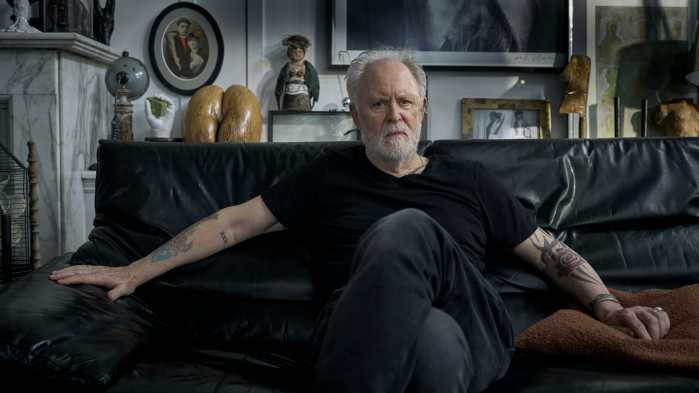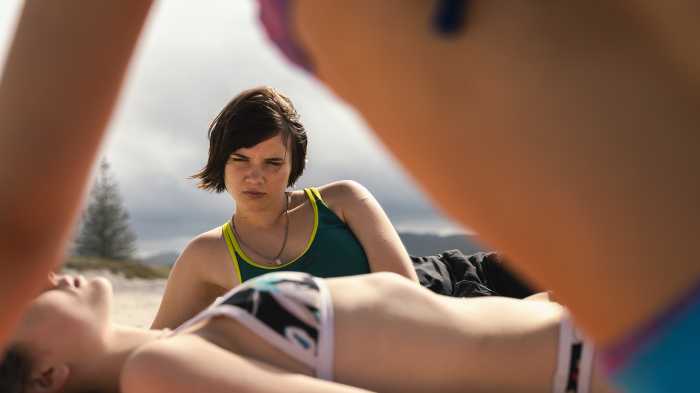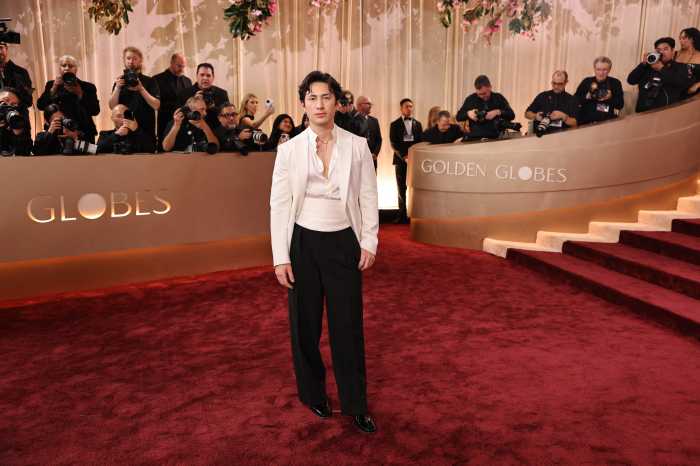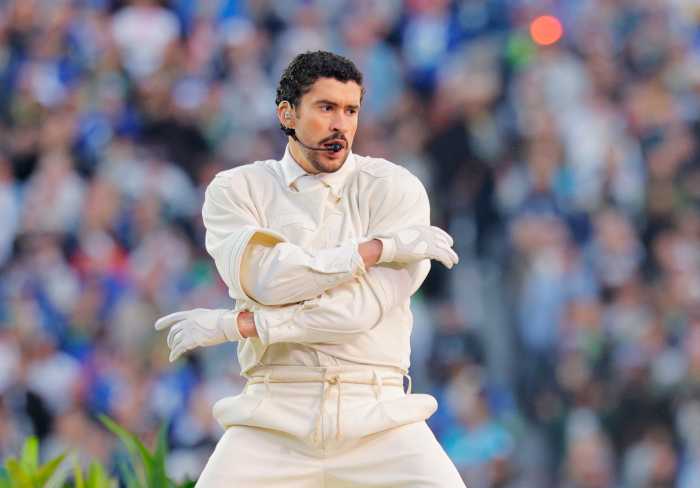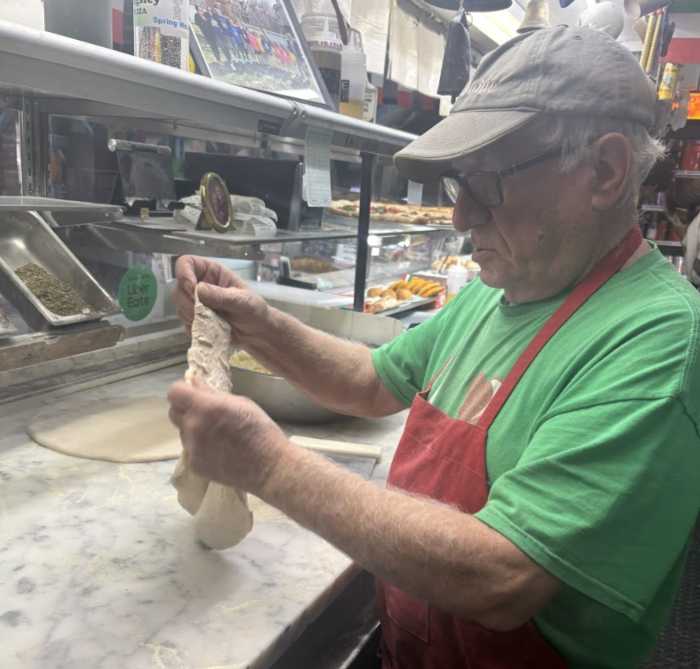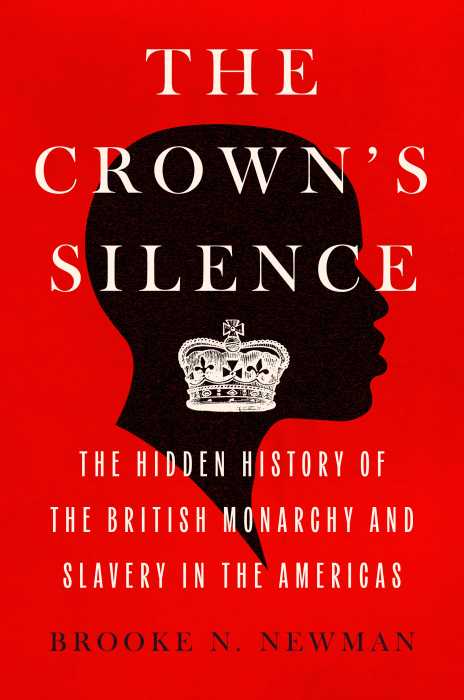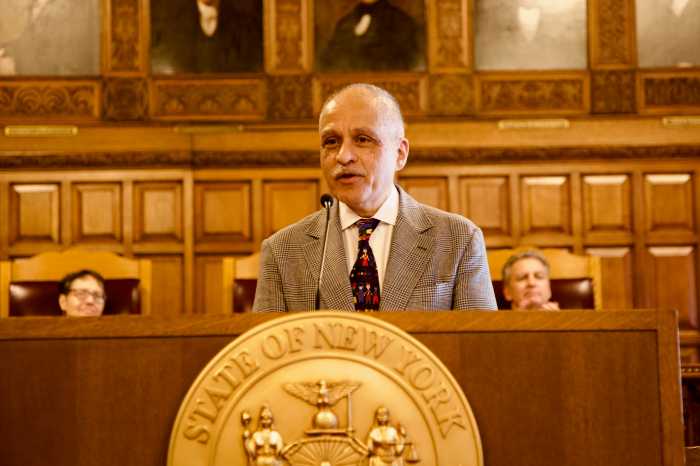Australian writer/director Craig Boreham’s erotic romance, “Lonesome” has Casey (out gay Josh Lavery) hitchhiking his way to Sydney hoping to see the ocean and escape his sordid past. Hooking up with Tib (Daniel Gabriel), Casey ends up befriending the young man, staying with him, and working with him; their bromance-with-benefits is sweet. But things soon turn sour. Casey, who lives by his wits and uses his body to survive, is looking for an emotional connection that Tib may not be able to provide.
“Lonesome” showcases the magnetic Lavery’s flinty performance as Casey absorbs and endures considerable psychological and physical abuse. The actor spoke with Gay City News about his star-making turn in “Lonesome.”
How did you identify with Casey, and approach playing him?
I grew up in the country, and when I was 18, I moved to Melbourne. So, I understood what that meant, and what it was like to be queer in a country town. That was a great reference for me personally. It was finding the physicality of the character that was the work. Once I found that, everything else fell into place in terms of my performance. It was trying to go back to my high school self, where I was trying to be more masculine than I was — as a lot of us queer people tend to do that growing up — so that was interesting, trying to butch it up for the role.
What I find appealing about Casey is his self-confidence. However, one character observes that Casey “truly enjoys being treated like shit.” I don’t think that’s true. He does what he needs to get by. Thoughts?
I did an interview recently, and they talked about that scene [where Casey is told that], and they said, “He’s forced to do this thing…” And I said, “No, he wasn’t forced to do it!” He was there by choice. He knew exactly what he had to do. He had a purpose — he was there to get money — and he got something out of that experience as well. He was very much in control.
Casey often tells people what he thinks they want to hear. He is trying to please them or get something from them — money, sex, a place to say. There is also a suggestion he is lonely and wants love. Is he a romantic who just projects a tough exterior so as not to get hurt?
It’s never easy growing up and being queer in the country. There is a sense that he’s still coming to terms with sexuality and the modern gay world, which is something he has not really been immersed in. There is some self-loathing in his character and Tib brings him out of that, and holds his hand, and opens him up to a new way of thinking. I think he does have self-confidence throughout the film, but he’s different when he meets Tib because of the connection they have, which is something he’s never experienced before in his life, and that relationship throws him off guard and why he loses his cool.
Can you talk about him and his relationship with Tib? They are rather codependent.
Casey is a man of few words, and I really tried to get as much as I could through facial expressions and drive home that he is holding all the cards to his chest until he feels safe enough to open up to Tib. I think it’s important that both characters are overcoming trauma. We see Casey face his trauma head on. There is a big lightbulb moment where he realizes why Tib does what he does, but they are codependent.
You talked about butching it up, earlier. “Lonesome” is very much a film about masculinity. What are your thoughts on how masculinity is presented in the film?
We slowly see Casey become more comfortable with himself. There is an important scene when Tib fucks him for the first time. He’s opening himself up to someone more emotionally—and quite literally. [Laughs] That’s a nice turning point in the film with Casey’s masculinity.
Casey is a potent image of masculinity. I admired his cowboy hat, his dirty clothes — when he wears them. Can you talk about that aspect of his character? The cowboy is a fantasy, and he’s playing up that fantasy to a degree with how he dresses and undresses.
The clothes play a role. In the party scene, he makes joke, but everyone else thinks he’s playing dress up. But those were his normal clothes. There’s an interesting shift where he switches from flannel into white top and tracksuit pants and no hat. He is leaving a big part of himself behind. It’s a nice visual reference, he is moving more into city life from his old, repressed self in the country.
Casey’s body is desired by many of the characters in the film, and your naked or near-naked body is certainly objectified throughout the film and there are some difficult scenes. You so seem comfortable in your skin. How did you prepare for those scenes?
We all have our own issues with our appearance and our bodies. I don’t think it’s ever easy to strip down naked in front of people at work! There is so much nudity in the film and we were naked so often that we kind of did disassociate and forget we were naked and were our characters performing. It was such a safe environment, and we had an intimacy coordinator — every film should have one! It was about making sure we felt safe and comfortable, and consented to touch each other. Our sex scenes were so meticulously rehearsed that by the time of filming it was easy to focus on our performance and not worry about our bodies. It is interesting watching yourself naked for two hours. I was able to dissociate myself from that person on the screen.
The strength of your performance is that viewers can read your character as he is processing all these emotions during the film’s many sex scenes. You are Josh performing as Casey is performing. But the film is a series of vulnerable, performative moments for you and the character. Can you talk about selling your sex appeal?
I think that whether I am fully clothed or completely naked, I am performing regardless. It doesn’t change your performance because you are naked or doing a sex scene. Each sex scene has a different emotion to convey — I know when Casey was angry, when he was falling in love with this guy, another scene sex was performed out of necessity, another scene was when he was bored. That’s Casey; that’s not me.
“Lonesome” | Directed by Craig Boreham | Opening February 17 | Distributed by Dark Star Pictures.



